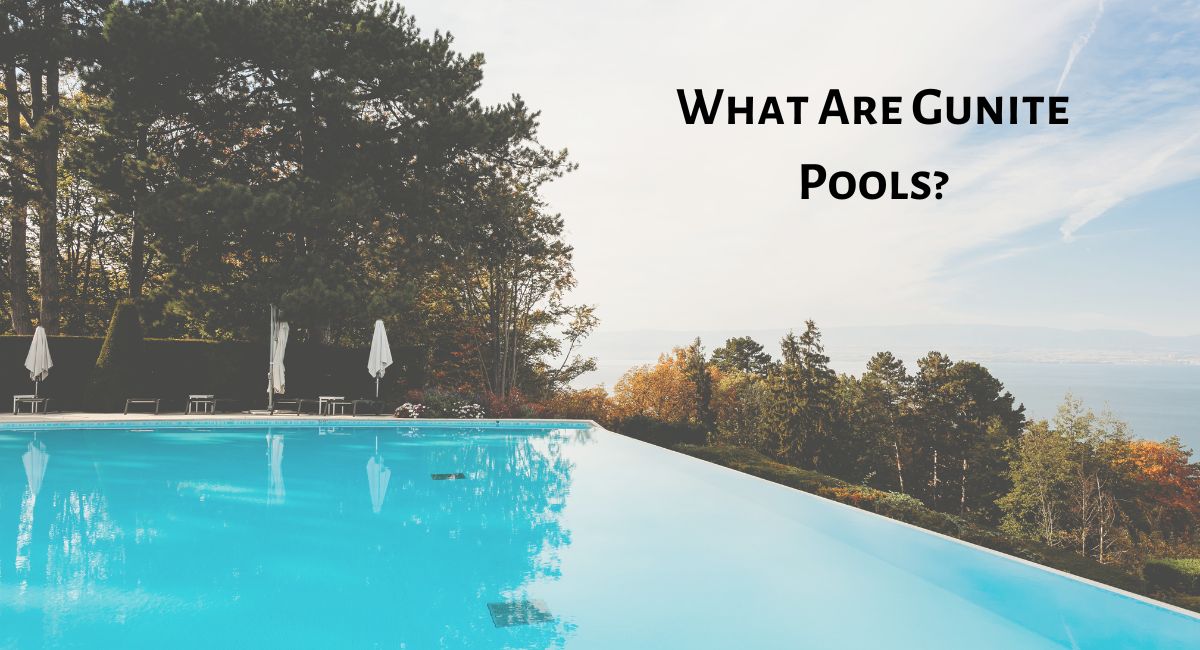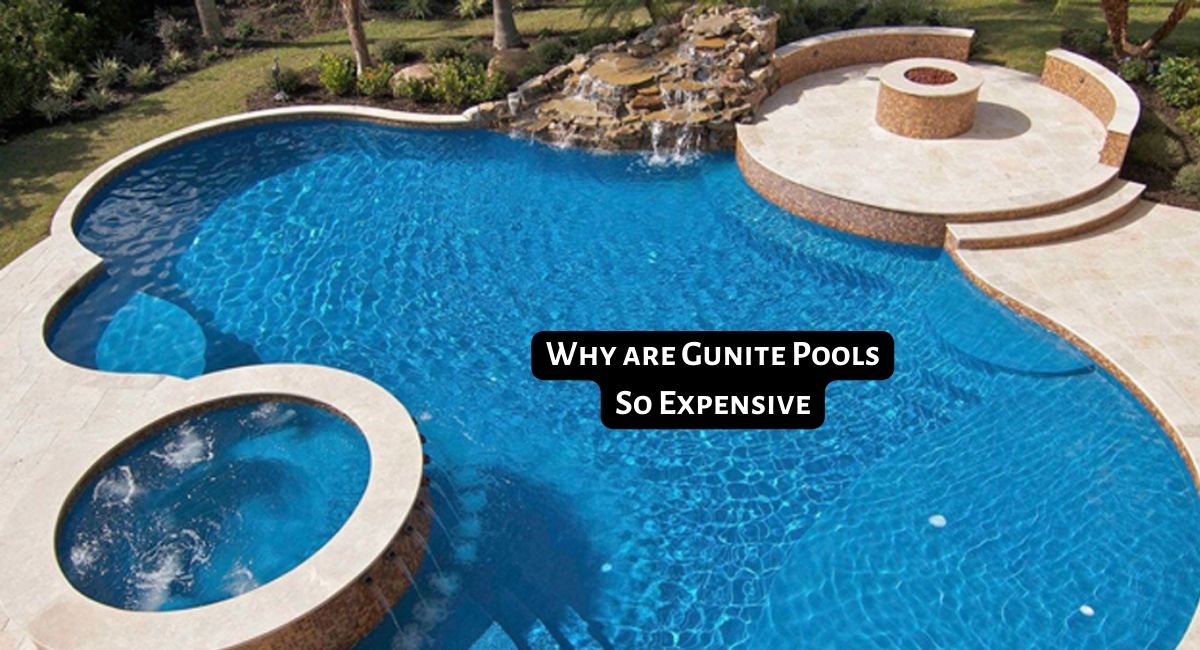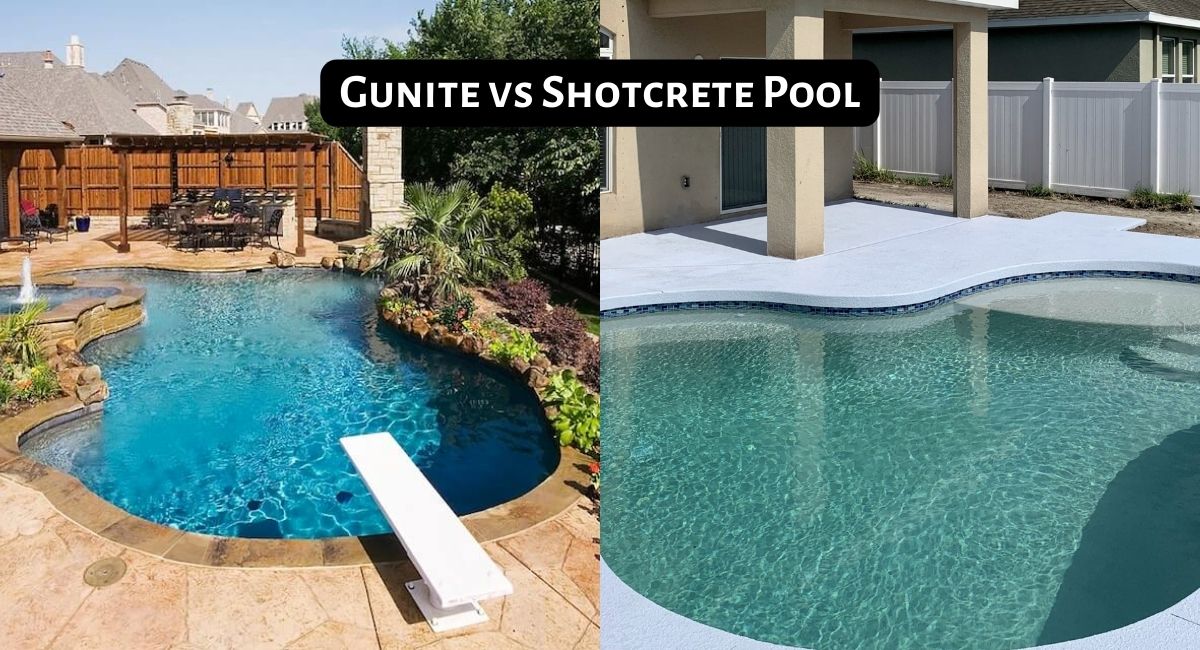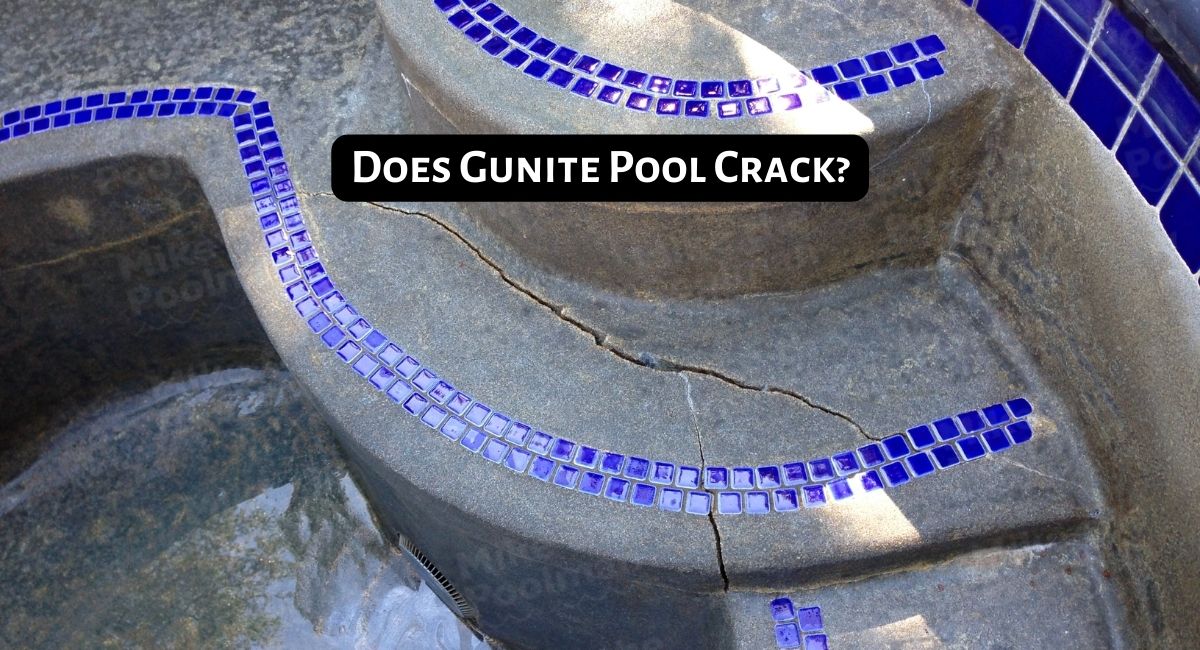If you are wondering what are gunite pools, they are in-ground swimming pools made from a mixture of sand and cement. This combination is known as gunite, which can be sprayed on the walls to create a reinforced pool structure. Gunite pools are extremely durable, and do not require significant maintenance or repair over the years. The walls of gunite pools are also very thick, which makes them less susceptible to cracking and other damage that can occur in a pool.
Gunite pools provide an incredibly strong pool structure that is both customizable and long-lasting. For these reasons, it’s easy to see why so many people are opting for gunite pools when they look to build a swimming pool for their home.
Table of Contents
What Are Gunite Pools – Everything You Need to Know
Gunite pools offer a variety of benefits that make them an attractive choice for many homeowners looking to install an in-ground swimming pool. They are durable, customizable, and require minimal maintenance. What’s more, gunite pools look great – providing a unique and stylish addition to any backyard. If you’re looking for a reliable pool that will last for many years to come, consider getting a gunite pool.
Gunite pools are also able to be customized with various features such as fountains, waterfalls, grottos, and more. Because of their durability and customization potential, gunite pools can last for many years with minimal upkeep. They are also aesthetically appealing, as the gunite walls can be textured or left smooth to create a variety of different looks.
What are the Types of In-Ground Pools?
In-ground pools come in many shapes and sizes, giving you a lot of options to choose from when it comes to your pool. The most common types include concrete, vinyl, fiberglass, and Gunite pools.
Gunite pools are the most popular type of in-ground swimming pool, as they provide users with an incredibly durable, long-lasting pool. Gunite pools are constructed by spraying a dry concrete and sand mixture – also known as Gunite – over a steel frame. What makes this type of material so strong is that it’s sprayed on site, which allows the mix to be customized for each specific pool.
The advantage of a Gunite pool is that it can be molded into any shape and size you wish, providing a completely custom swimming experience. This type of pool offers more customization options than concrete or vinyl pools, but requires more maintenance as the plaster needs to be periodically replaced.
If you’re looking for an in-ground pool with plenty of design flexibility, Gunite is the way to go. It requires more maintenance than other pool materials, but offers a durable and stylish option that can be tailored to your needs. With proper care and maintenance, Gunite pools can last for many years – offering you an incredible swimming experience for years to come.
Are Gunite Pools Better Than the Rest?
When it comes to swimming pools, Gunite pools stand out from the rest. What are Gunite pools? They are a type of in-ground pool that is constructed by spraying a special mixture of sand, cement and water over steel reinforcement bars. The result is an incredibly durable and long-lasting structure that can last for decades – far longer than other types of pool construction like vinyl, fiberglass, or concrete.
The strength and longevity of a Gunite swimming pool is the main reason why they are more expensive than some other types of pools, but the benefits far outweigh the cost. For instance:
– Gunite pools are incredibly strong and can support extra weight without any extra reinforcement, making them ideal for installations that include waterfalls or slides.
– They are highly versatile and can be customized with a variety of shapes, sizes, and depths.
– The material is also resistant to chemical damage, which means it will look like new for many years.
The installation process for a Gunite pool is also quite easy. Typically, the sand and cement mixture is pumped onto the walls and floors of the pool, which are then reinforced with steel rebar and spray-troweled smooth. Once this process is complete, the pool can be filled with water and used right away.
So if you’re thinking about installing a pool, make sure to consider a Gunite pool. It’s an investment that will pay off for years to come! With its strength and durability, you can be sure that your family will enjoy a beautiful and safe swimming experience for many years. What more could you ask for?
Gunite Pools – Advantages and Disadvantages
These are just some of the advantages and disadvantages of owning a gunite pool. If you’re considering installing one in your backyard, it’s important to weigh the pros and cons carefully before making a final decision.
Gunite pools offer several advantages when compared to traditional vinyl or fiberglass pools:
- Superior Strength and Durability – Gunite is a highly durable material that can withstand harsh weather conditions, making it the ideal choice for outdoor swimming pools. The construction process involves spraying the gunite material onto a steel rebar frame, providing superior strength.
- Customizable Designs – Unlike other pool materials, gunite allows for complete customization of shapes and sizes, giving you more design freedom when it comes to your pool. Not only can you make the deep end as deep as desired, but other features such as waterfalls or tanning ledges are also possible with gunite pools.
- Longer Lifespan – Gunite pools require very little maintenance and have a longer lifespan than other pool types. With proper care, your gunite pool can last for decades.
While there are many advantages to owning a gunite pool, there are also some potential disadvantages you should be aware of:
- High Installation Cost – Gunite pools tend to have a higher installation cost than other pool types. This is due in part to the material’s durability and strength, as well as its custom design capabilities.
- Lengthy Construction Process – The construction process for gunite pools can be quite lengthy; typically taking 8-10 weeks from start to finish.
- More Maintenance Required – Gunite pools require more maintenance than other pool types due to the porous nature of the material. Regular brushing and scrubbing of the pool surface, as well as continual pH level testing are necessary for keeping a gunite pool in top condition.
How to Maintain Gunite Pools?
Maintaining a Gunite pool is essential for keeping it healthy, clean, and safe. As with any swimming pool, proper maintenance requires regular cleaning and care to ensure that it remains in good condition. Here are some tips on how to maintain your Gunite pool:
- Clean the filter frequently: This will help remove debris that has built up in the pool, such as leaves, twigs, and pollen. Make sure to check the filter regularly to ensure it is working properly.
- Skim the surface of your pool every day: This will help remove any dirt or debris that may have gotten into the water.
- Check your chemical levels regularly: The water in your Gunite pool needs to be properly balanced to ensure it is safe for people to swim in. Check the chlorine and pH levels every week or two, and add chemicals as needed.
- Inspect the walls and floors of your pool periodically: Look for cracks, chips, discoloration, or any other signs of wear and tear. Have any repairs done as soon as possible to avoid further damage.
- Monitor your pool’s pump and filter system regularly: Make sure the water is properly circulating, and that the pump and filter are working properly. Pay special attention to areas where algae or mold may have started to form.
These are just a few tips to keep your Gunite pool in good condition. If you’re unsure about any of these tasks, you should consider hiring a professional for proper maintenance and cleaning. Keeping up with regular pool maintenance will ensure that your Gunite pool lasts for years to come. Happy swimming!
Conclusion
If you’re considering getting a gunite pool, it’s important to know that the installation process is more complex than with other types of pools. Gunite pools are built from scratch, so you’ll need to work with an experienced contractor who can create a design and build your pool according to your specifications. Additionally, the installation process typically takes longer than with other types of pools.
However, you can rest assured that your gunite pool will provide decades of enjoyment if it is installed correctly and maintained properly.
Happy swimming!
Frequently Asked Questions
What is the difference between a concrete pool and a gunite pool?
Gunite pools are made using a special process involving the spraying of concrete and sand mixture, also known as gunite. Gunite is an incredibly strong material that can be applied to a steel-reinforced framework, creating a structurally sound shell. The advantage of gunite over poured concrete is that it can be easily manipulated into any shape or size. This allows for a lot of creative freedom in designing the pool, allowing for unique configurations and shapes.
What is the benefit of gunite pool?
Gunite pools offer many benefits to those considering a new pool. They are durable, easy to customize and maintain, and cost-effective. Gunite swimming pools are composed of a cement mortar mix applied pneumatically with a hose. This allows the material to penetrate deeply between the reinforcing steel rods, creating an incredibly strong bond that can withstand years of wear and tear.
What are the pros and cons of a gunite pool?
Gunite pools have a few distinct advantages. First, they are highly customizable. This allows you to create the pool of your dreams and to build it exactly as you wish. Second, gunite is an especially durable material that can withstand all kinds of wear and tear. It is also resistant to cracking and fading, making it long-lasting and low-maintenance.
What is the difference between gunite and plaster pool?
Gunite pools, also known as shotcrete pools, are made of a dry-mix concrete and water combination that is applied to the steel rebar frame that makes up the pool’s structure. The mixture is sprayed into place and then cured, creating a very durable surface for the pool’s interior. In comparison, plaster pools are composed of a mixture of white cement blended with marble dust and sand. The mix is then applied to the steel rebar that forms the pool structure, creating a smooth finish.
What is the lifespan of a gunite pool?
Gunite pools have a very long lifespan when properly maintained. With proper maintenance and upkeep, you can expect your gunite pool to last for 20-30 years or even longer. This is much longer than other types of pools, such as vinyl liner pools which usually only last 10-15 years with proper care and maintenance.



